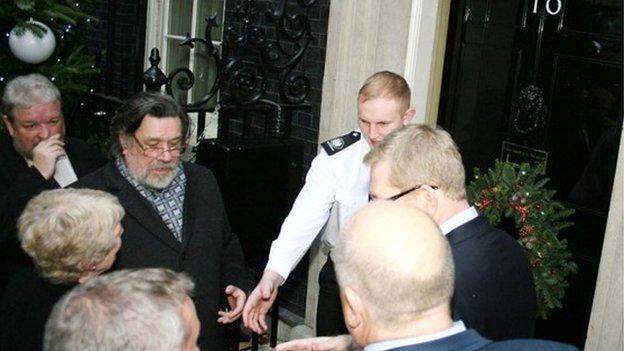Ricky Tomlinson and trade unionists try to overturn convictions
- Published
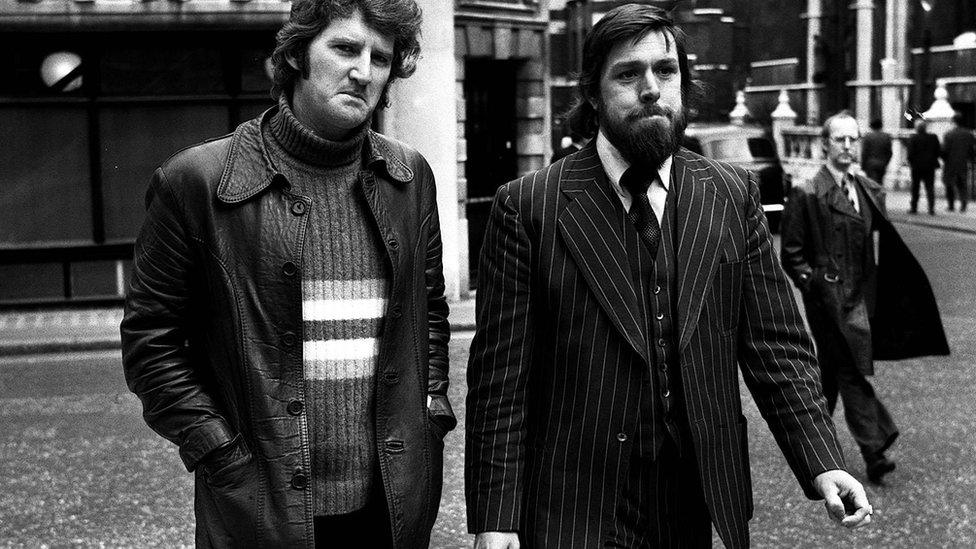
Dennis Warren, deceased, and Ricky Tomlinson: Among the 14 appellants in the case
Trade unionists attempting to overturn convictions in a 47-year-long campaign have told the Court of Appeal they were victims of an establishment plot.
The 14-strong group, including actor Ricky Tomlinson, say police destroyed evidence, and shadowy security chiefs prejudiced their trial.
The men were convicted over allegedly illegal protests during a 1972 strike.
Six of the 14 have since died, including Dennis Warren, who was jailed for three years.
Their families are continuing the cases in their names. Tomlinson, then known as Eric, was jailed for two years in the first of three trials that lasted until 1974.
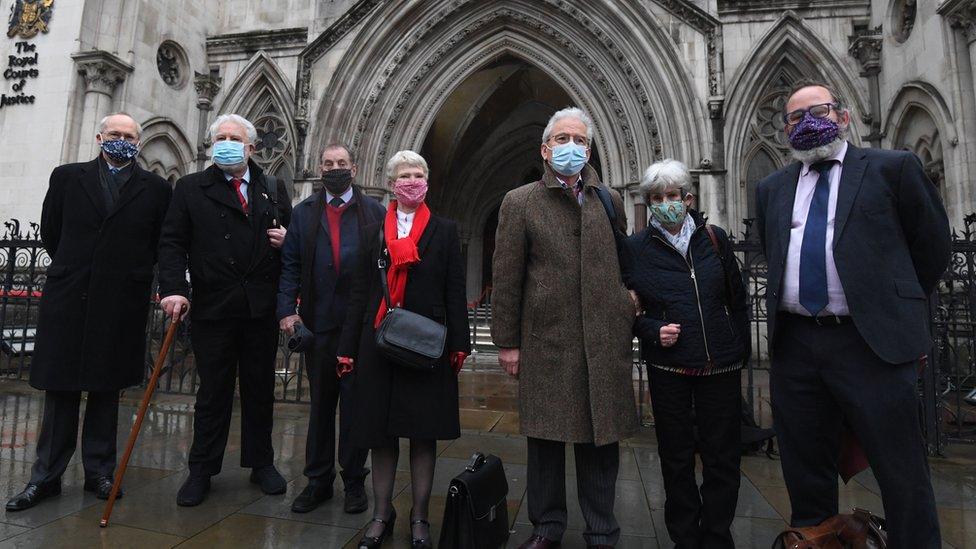
Appellants Terry Renshaw (second left) and John McKinsie Jones (centre) at the Court of Appeal
In June 1972, trade unionists called the UK's first-ever national builders' strike in protest against pay, unjust employment practices and dangerous conditions on sites.
Flying pickets, in which trade unionists travel to demonstrate from one site to another, went from town to town urging builders to down tools - and in September six coach-loads of strikers demonstrated in Shrewsbury and Telford.
Police arrested none of the demonstrators that day - but five months later, amid pressure from building industry bosses, Tomlinson and others were charged and subsequently convicted of offences including unlawful assembly, intimidation and affray.
Those convictions triggered a massive campaign among left-wing groups during the 1970s - but the men failed to have the verdicts reversed on appeal.
Document uncovered
Last year, the Criminal Cases Review Commission, the official body that looks at potential miscarriages of justice, sent the case back to the Court of Appeal after Eileen Turnbull, the researcher for the justice campaign, uncovered a potentially crucial document in the National Archives.
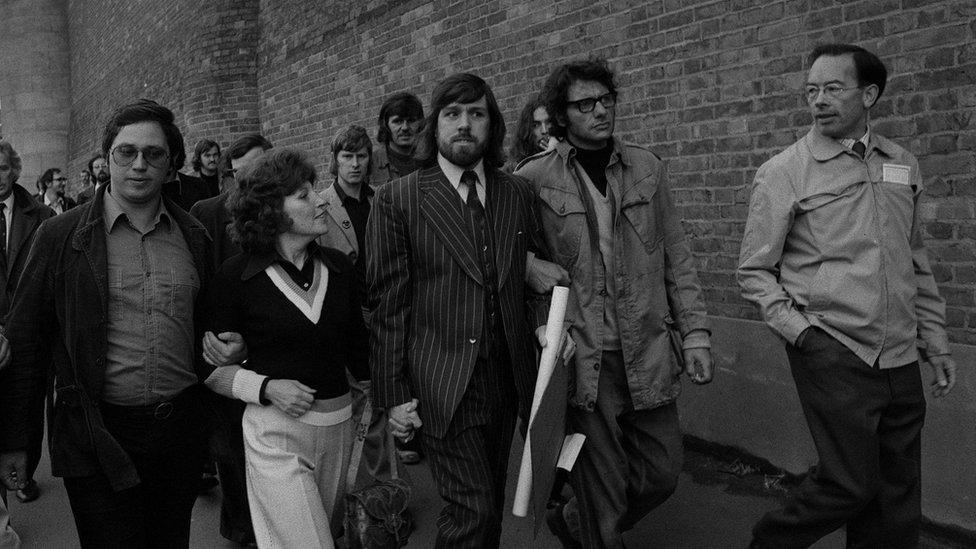
Ricky Tomlinson (centre) leaving prison after his sentence
That document, part of prosecution papers, revealed for the first time that police had destroyed some of the original witness statements.
Danny Friedman QC, speaking for 12 of the men, told the Court of Appeal these missing original statements would have been crucial.
"If today a prosecution counsel is told by [police] officers ... original statements have been destroyed, two things absolutely have to happen.
"Number one, you need to immediately get a statement from the officer in the case, explaining in detail what on earth he is talking about. Secondly, you must also make sure that this issue is disclosed to defence and the judge."
Mr Friedman said the jury must have also known about a highly-prejudicial ITV documentary, Red under the Bed.
Official government papers show its content was influenced by a then secret anti-communist propaganda unit inside the Foreign Office which, alongside MI5, was concerned about Moscow's potential infiltration of trade unionists.
The programme was broadcast halfway through the trial - at a time when there were only three TV channels in the UK - and it was also reported in many national newspapers.
It purportedly investigated communist agitators and included footage of the defendants, their supporters, police lines and pictures of strikers.
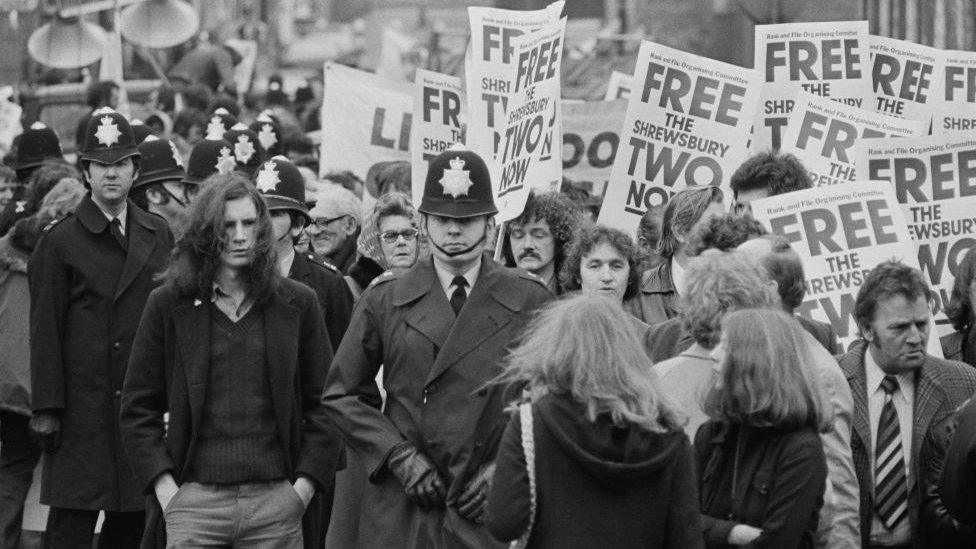
Demonstration: Trade unionists came out in support of Tomlinson and Warren - and later the others
A studio discussion following the film included a panellist referring to the builders' strike as an example of "blatant communist influence".
That statement alone was deeply prejudicial, say the 14's lawyers, because it would have provoked "panic" in the mind of the jury.
Mr Friedman told the court: "It is obvious... a covert executive agency played a part in deliberately propagandising against the core subject matter of the [men's prosecution].
"It is clear now that the higher echelons of the state bore responsibility for deliberate covert involvement in the production of the programme."
Lawyers for the Crown Prosecution Service are expected to argue during the appeal's second day that the TV documentary is irrelevant, and that no actual evidence was destroyed by police as they prepared case papers.
- Published27 May 2020
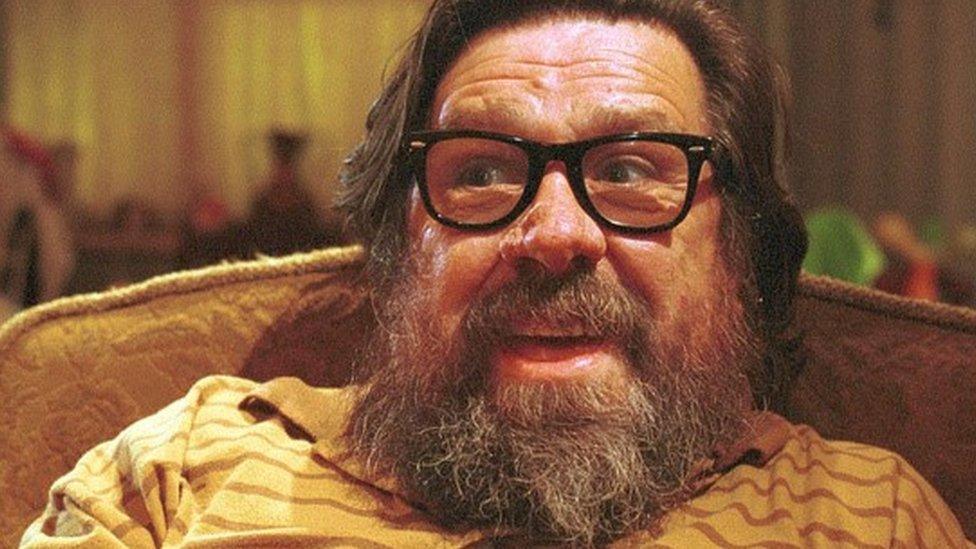
- Published23 September 2014
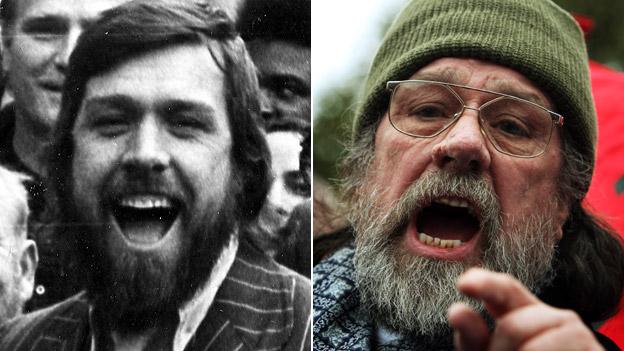
- Published23 January 2014
